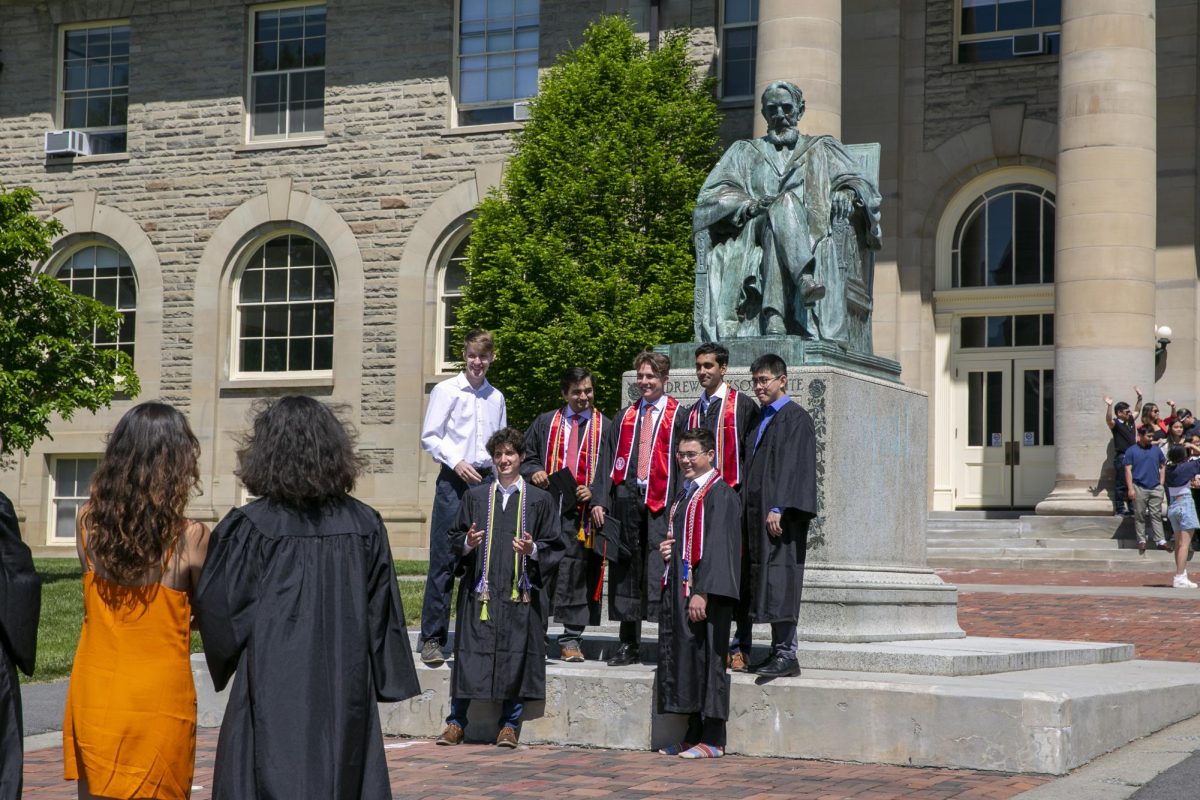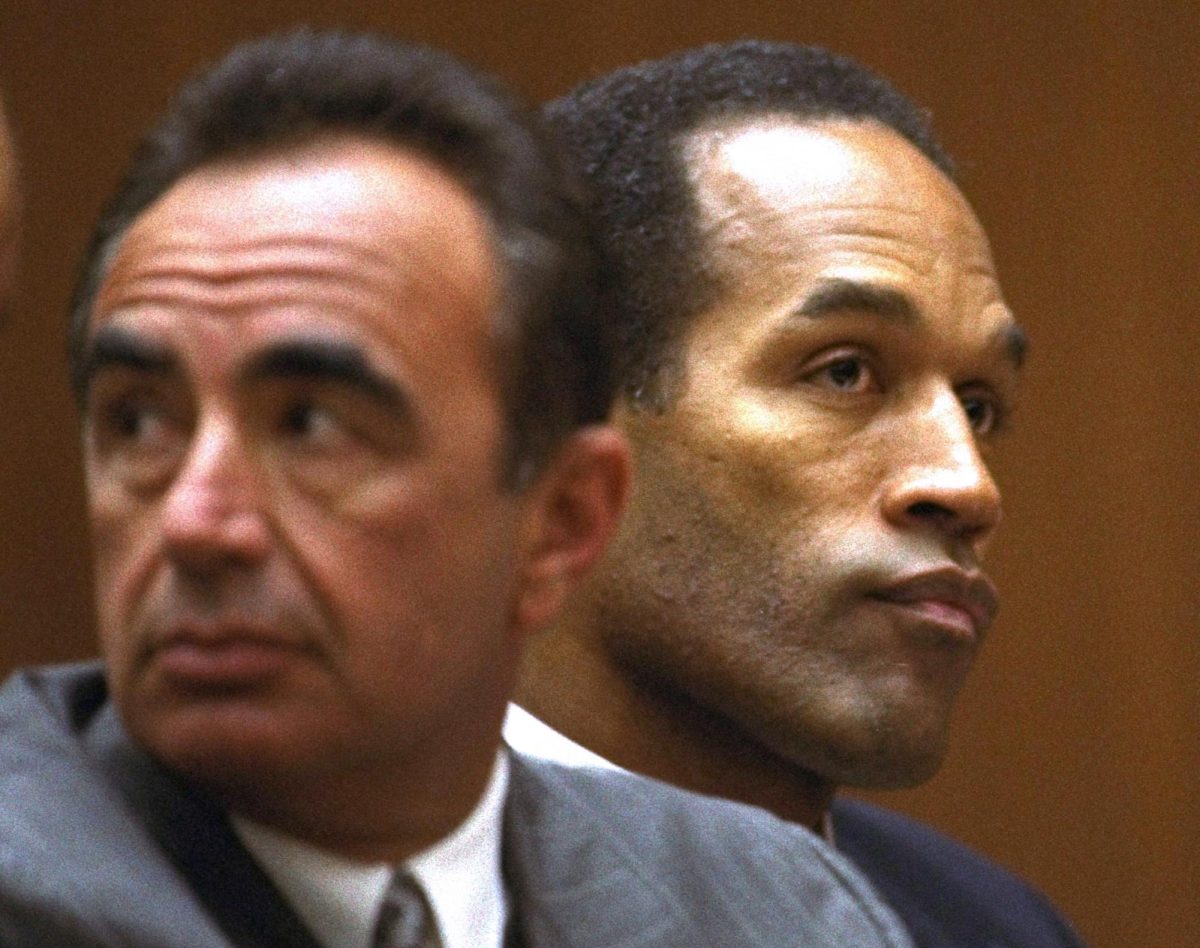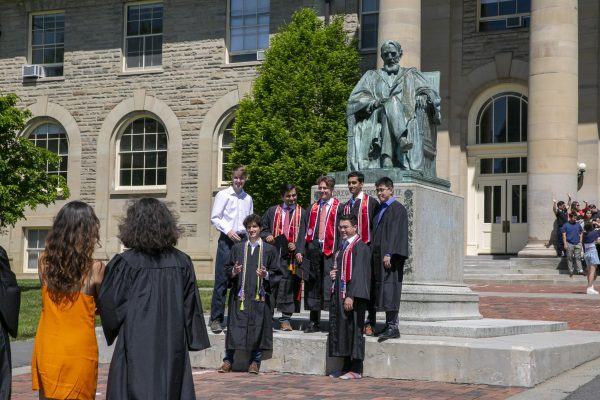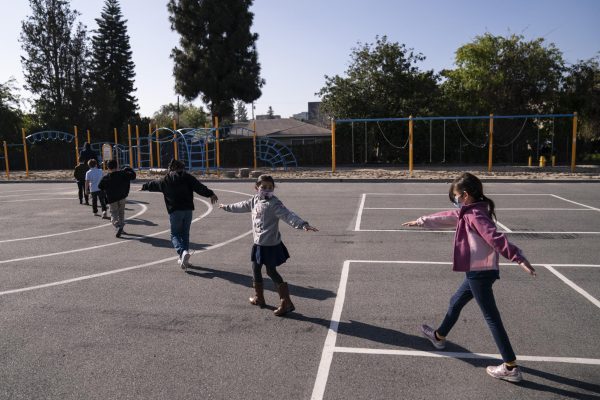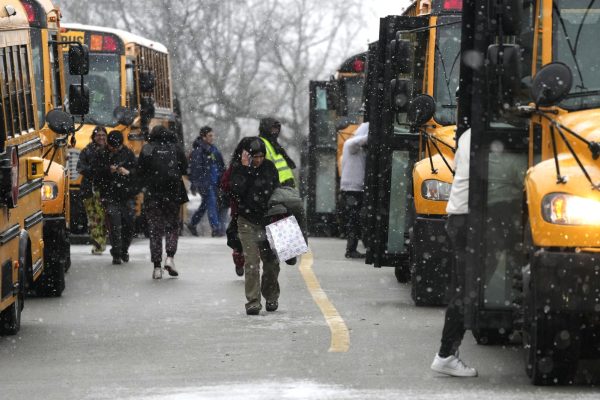Christopher Columbus Is No One to Celebrate
October 18, 2019
What does a murderous, thieving scoundrel who is antithetical to values like freedom and dignity receive? In America, he gets a day of praise and recognition.
The tradition started in 1937 when President Franklin Delano Roosevelt declared the second Monday in October a federal holiday, according to Brittannica.com, to “commemorate the landing of Christopher Columbus on October 12, 1492, in the New World.”
While I will admit that the day of rest and relaxation is nice, Columbus Day hides a dark history that America cannot ignore.
Columbus began wreaking havoc in the Americas the moment he arrived from Italy. The native Arawak people of the Bahama islands immediately welcomed him and his crew, bringing them handmade gifts, food and water. Columbus acknowledged this kindness and his own violent response in his log, according to Howard Zinn’s “A People’s History of the United States.”
“They willingly traded everything they owned,” Columbus wrote. “…As soon as I arrived in the Indies, on the first Island which I found, I took some of the natives by force in order that they might learn and might give me information of whatever is in these parts.”
Columbus was selfishly motivated by the notoriety and wealth that Queen Isabella and King Ferdinand of Spain had promised him for the gold and spices he said he would find on this expedition that they financed; he would stop at nothing to obtain what he guaranteed the monarchs.
Continuing his path of destruction, Columbus moved on to Hispaniola and Cuba, enslaving the people there and giving them impossible tasks. And he was brutal.
“…Where he and his men imagined huge gold fields to exist, they ordered all persons fourteen and older to collect a certain quantity of gold every three months,” Zinn wrote. “When they brought it, they were given copper tokens to hand around their necks. Indians found without a copper token had their hands cut off and bled to death.”
That’s just one example of Columbus’s cruelty. Why is it still acceptable to honor this man?
Columbus Day activists argue that the day celebrates Italian history and should therefore be kept.
“I’m spending my Columbus holiday this year in New York, participating in the parade sponsored by Italian-Americans who proudly celebrate the courage and skill of the Genoese explorer who transformed the world,” CEO and founder of the Center for Education Reform Jeanne Allen wrote in a 2017 opinion column for the Washington Examiner.
But still, we cannot reasonably discount Columbus’s despicable deeds. So I propose a solution: the U.S. government should federalize Indigenous Peoples’ Day, keeping it on the second Monday of October.
The holiday, which merely renames the existing Columbus Day, according to Smithsonianmag.com, was first proposed in 1977 by the United Nations International Conference on Discrimination against Indigenous Populations in the Americas. In 1990, the first state to adopt Indigenous People’s Day was South Dakota, and many others followed.
“Indigenous Peoples’ Day recognizes that Native people are the first inhabitants of the Americas, including the lands that later became the United States of America,” the Smithsonian reported. “And it urges Americans to rethink history.”
We can’t go back in time and change the horrendous offenses committed against indigenous peoples in this country. But we can impact the future. In Columbus Day’s place, America must instead celebrate Indigenous Peoples’ Day — a holiday that honors groups of people who are thriving despite the crimes for which Columbus stands.



